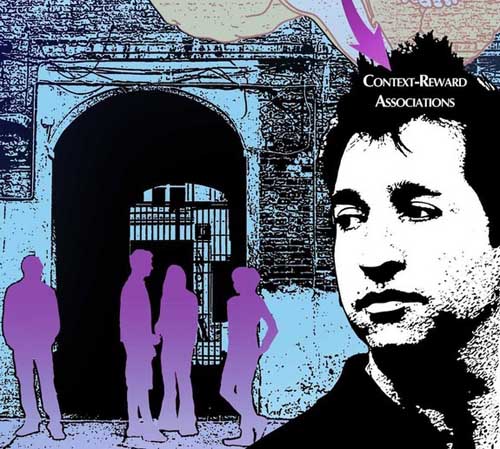

People with addictions suffer from one or more personality disorders. This we know.
I've written dozens of blogs about the brain being an electrochemical machine that responds to stimuli. The brain is consciousness at this level of awareness. Addiction is part of the brain's programming that guides all behavior in the consciousness hologram of our reality. What does that mean? You are having a virtual experience in a simulation that your brain tells you is real -- so you react physically and emotionally.
People are addicted to all sorts of things from substance abuse, gambling, cheating, cursing, allowing themselves to be abused, abusing others, overeating, and anything else they are genetically predisposed to.
Your DNA carries the codes of all that you will experience in this reality. The brain guides your programming based on DNA coding (the 11:11 Effect - The brain as binary code.
It's all predestined ... sorry but free will is limited if it exists at all. It is all about patterns, created by the collective unconsciousness to study human behavior in physical reality. If you believe we can manifest anything - take a look at the condition of the world.
When something is out of balance in the chemistry of a person's brain, they will react by doing anything to restore balance and make the pain go away - creating patterns and pathways of experience that they will repeat over and over in a lifetime.
Like the brain, physical reality is created by electromagnetic energy and is therefore bipolar forever trying to balance the yin and yang aspects of its creation and forever failing as the program is self-defeating.
Thankfully it is almost over.
Addiction Now Defined As Brain Disorder, Not Behavior Problem Live Science - August 15, 2011
Addiction is a chronic brain disorder and not simply a behavior problem involving alcohol, drugs, gambling or sex, experts contend in a new definition of addiction, one that is not solely related to problematic substance abuse. The American Society of Addiction Medicine (ASAM) just released this new definition of addiction after a four-year process involving more than 80 experts.
"At its core, addiction isn't just a social problem or a moral problem or a criminal problem. It's a brain problem whose behaviors manifest in all these other areas," said Dr. Michael Miller, past president of ASAM who oversaw the development of the new definition. "Many behaviors driven by addiction are real problems and sometimes criminal acts. But the disease is about brains, not drugs. It's about underlying neurology, not outward actions."
The new definition also describes addiction as a primary disease, meaning that it's not the result of other causes, such as emotional or psychiatric problems. And like cardiovascular disease and diabetes, addiction is recognized as a chronic disease; so it must be treated, managed and monitored over a person's lifetime, the researchers say.
Two decades of advancements in neuroscience convinced ASAM officials that addiction should be redefined by what's going on in the brain. For instance, research has shown that addiction affects the brain's reward circuitry, such that memories of previous experiences with food, sex, alcohol and other drugs trigger cravings and more addictive behaviors. Brain circuitry that governs impulse control and judgment is also altered in the brains of addicts, resulting in the nonsensical pursuit of "rewards," such as alcohol and other drugs.
A long-standing debate has roiled over whether addicts have a choice over their behaviors, said Dr. Raju Hajela, former president of the Canadian Society of Addiction Medicine and chair of the ASAM committee on addiction's new definition.
"The disease creates distortions in thinking, feelings and perceptions, which drive people to behave in ways that are not understandable to others around them," Hajela said in a statement. "Simply put, addiction is not a choice. Addictive behaviors are a manifestation of the disease, not a cause." Even so, Hajela pointed out, choice does play a role in getting help. "Because there is no pill which alone can cure addiction, choosing recovery over unhealthy behaviors is necessary," Hajela said.
This "choosing recovery" is akin to people with heart disease who may not choose the underlying genetic causes of their heart problems but do need to choose to eat healthier or begin exercising, in addition to medical or surgical interventions, the researchers said.
"So, we have to stop moralizing, blaming, controlling or smirking at the person with the disease of addiction, and start creating opportunities for individuals and families to get help and providing assistance in choosing proper treatment," Miller said.